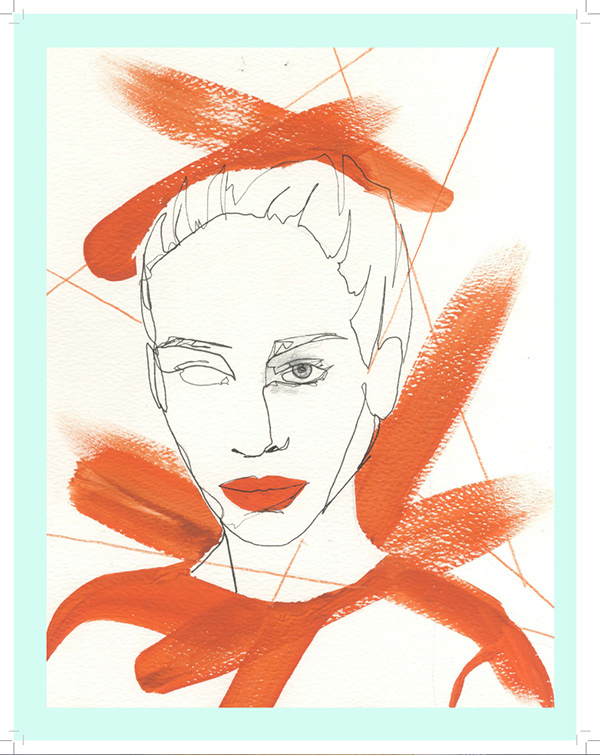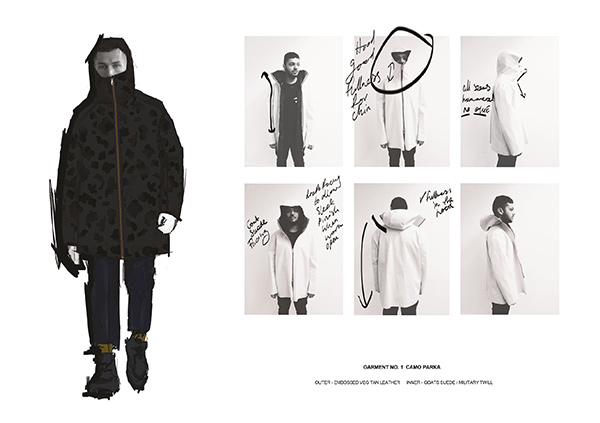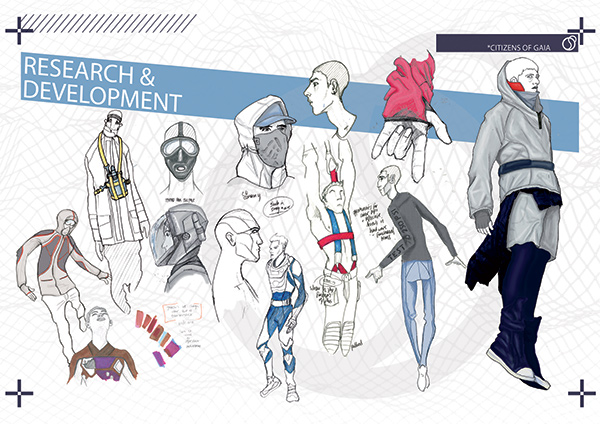-
Study
Study
Interested in studying at Northumbria? With 31,500 students, Northumbria is one of the largest universities in the country, offering courses on either a full-time, part-time or distance learning basis.
Discover more-
Undergraduate
- Undergraduate Study Degree
- Undergraduate Open Day & Events
- Application Guides
- Northumbria University UCAS Exhibitions
- Foundation Years
- Undergraduate Fees & Funding
- School & College Outreach
- Continuing Professional Development
-
Postgraduate
- Postgraduate Study Degree
- Postgraduate Research Degrees
- Postgraduate Open Days and Events
- Postgraduate Fees & Funding
- Flexible Learning
- Thinking about a Masters?
- Continuing Professional Development
- Change Direction
-
Student Life
- The Hub - Student Blog
- Accommodation
- Life in Newcastle
- Support for Students
- Careers
- Information for Parents
- Students' Union
- Northumbria Sport
-
-
International
International
Northumbria’s global footprint touches every continent across the world, through our global partnerships across 17 institutions in 10 countries, to our 277,000 strong alumni community and 150 recruitment partners – we prepare our students for the challenges of tomorrow. Discover more about how to join Northumbria’s global family or our partnerships.
Discover more-
Applying to Northumbria
- European Union
- Our London Campus
- Northumbria Pathway
- International Events
- Entry Requirements
- Agent Network
-
Northumbria Language Centre
- Faculty Requirements
- Acceptable English Requirements
- Pre-Sessional English and Study Skills
- Academic Language Skills Programmes (ALS)
-
International Fees, Funding & Scholarships
- International Undergraduate Fees
- International Undergraduate Funding
- International Masters Fees
- International Masters Funding
- International Postgraduate Research Fees
- International Postgraduate Research Funding
- International Money Matters
-
Life at Northumbria
- International student support
- The Hub - Student Blog
- Careers
-
International Mobility
- Current Northumbria Students
- Incoming Exchange Students
-
-
Business
Business
The world is changing faster than ever before. The future is there to be won by organisations who find ways to turn today's possibilities into tomorrows competitive edge. In a connected world, collaboration can be the key to success.
Discover more -
Research
Research
Northumbria is a research-rich, business-focused, professional university with a global reputation for academic quality. We conduct ground-breaking research that is responsive to the science & technology, health & well being, economic and social and arts & cultural needs for the communities
Discover more -
About Us
-
About Northumbria
- Our Strategy
- Our Staff
- Our Partners
- Student Profiles
- Alumni Profiles
- Leadership & Governance
- Academic Departments
- University Services
- History of Northumbria
- Contact us
- Online Shop
-
-
Alumni
Alumni
Northumbria University is renowned for the calibre of its business-ready graduates. Our alumni network has over 236,000 graduates based in 178 countries worldwide in a range of sectors, our alumni are making a real impact on the world.
Discover more - Work For Us
What will I learn on this module?
Final Major Project Research Report is an enquiry-based theoretical module, which supports and informs the development of your professional practical Final Major Project (FMP). The learning and teaching strategy for this module helps you to identify and frame an appropriate discussion question, and to independently source and critically engage with sophisticated research materials, theories and debates appropriate to exploring your chosen topic.
The subject matter for this module is dependent upon your specialism for your FMP, but staff with years of research expertise will support you to define and plan your research, reflect on the findings and, through the academic writing of the report, project directional conclusions that support and enhance the development of your practical project work.
The skills covered will include:
? Writing and justifying your FMP proposal; defining your project objectives.
? Planning a schedule of research through primary and secondary sources.
? Carrying out primary research.
? Critically appraising your source materials and findings.
? Undertaking a piece of academic writing and academic conventions of writing (e.g. referencing, presenting an argument, plagiarism).
You will build on your learning in this module to enable you to undertake the Marketing Plan (a component of FA6003 Final Major Project Realisation) in semester 2. Together, these two documents demonstrate your ability to plan, organise and manage effective research in order to produce a fashion marketing strategy which launches your FMP product/service into a real-world fashion scenario.
How will I learn on this module?
Northumbria X-Studio (Extended Studio):
Learning and teaching strategies on Fashion Design & Marketing encourage you to acquire a flexible and imaginative approach to creative problem solving through enquiry-based learning. You will become an active participant in your learning, integrating creative practice with academic and intellectual skills.
The School of Design operates an extended studio approach (X-Studio) that embraces our physical studios and making workshops as well as our virtual spaces to create a flexible and rich environment that is responsive to our learners’ needs.
This dedicated approach has been developed over many years of continuous teaching innovation, research and industry collaboration. It has created a supportive extended studio culture that encourages our students to learn flexibly, dynamically blending their learning and University experience between physical and digital interactions both in real-time and online at their own pace.
We believe that this extended studio culture not only helps our students to become more confident autonomous learners but also prepares them for a dynamic design industry in which an extended studio philosophy is current practice.
You will be introduced to the module by research-active staff who share their own knowledge and experience to support you in the planning, search and organisation of evidence-based material for your self-determined research enquiry. These contextual sessions are then followed by a seminar group delivered either in the Design School or VLE, where you will be introduced to previous student work to be discussed and critiqued to help you understand the structure of the Research Report, and to clarify the meaning of ‘good performance’ in relation to the Module Learning Outcomes.
The Learning and Teaching Strategy then engages activities to prepare you with the academic skills of; intellectual autonomy; critical and independent enquiry; primary and secondary research methodologies; engaging with research findings to construct an argument. Small group and individual tutorials delivered either in the Design School or VLE, encourage active participation and dialogue around your own enquiry, as well as providing an opportunity to discuss and clarify learning and assessment.
How will I be supported academically on this module?
Module staff will guide and support you through the stages of writing the Research Report by means of; lectures, seminars, group and individual tutorials delivered either in the Design School or VLE. Module contact time provides the opportunity for you to receive on-going tutor and peer feedback, and to clarify issues and discuss assessment criteria. Direction will also be given to students regarding Tutor Guided Independent Learning and Student Guided Independent Learning, where such activities may include; reading, reflection or research, used to provide deeper or broader knowledge of the subject. Additional study skills materials and workshops are available through Skills Plus at: http://nuweb2.northumbria.ac.uk/library/skillsplus/topics.html?l3-0.
There are two formative feedback points in the module to promote personal responsibility in managing your workload. This also provides you with the opportunity to apply feedback and improve your competencies before your final summative assessment.
Northumbria University student support also includes;
? If you are an International student, you will receive extra support via weekly ESAP (English for Specific Academic Purposes) sessions through specialist English Language teaching.
? SASC (Student Advice & Support Centre) provide specialist support with personal issues including; DSSR (Disabled Student Support Recommendations) statements; PECs (Personal Extenuating Circumstances) and LAs (Late Approved submission) processes. They will also be able to refer you to the correct service if they cannot help you directly.
? The eLP (eLearning Portal) will include all relevant module documentation e.g. module guides, lecture material, video-captures and reading lists and any notices relevant to the running of the module.
What will I be expected to read on this module?
All modules at Northumbria include a range of reading materials that students are expected to engage with. The reading list for this module can be found at: http://readinglists.northumbria.ac.uk
(Reading List service online guide for academic staff this containing contact details for the Reading List team – http://library.northumbria.ac.uk/readinglists)
What will I be expected to achieve?
On successful completion of this module, you should be able to:
Knowledge & Understanding:
1. Demonstrate critical analysis in the evaluation of research evidence or material through the writing of a comprehensive Research Report.
Intellectual / Professional skills & abilities:
2. Evidence your ability to define and articulate an opportunity/problem and structure your argument through the writing of the Research Report.
3. Evidence an assured approach to written project work through the review, appraisal and discussion of primary and secondary research sources.
Personal Values Attributes (Global / Cultural awareness, Ethics, Curiosity) (PVA):
4. Demonstrate highly effective and professional organisational skills as evidenced through the ability to undertake a comprehensive and coherent body of research work.
How will I be assessed?
Your Research Report is 100% of the module summative assessment, which addresses all 4 MLOs.
There will be 2 formative assessment points;
a. Research plan and bibliography; PVA 7
b. 1,000 word discussion section draft; KU 3, IPSA 2, IPSA 15, PVA 7
In addition, your 1,000 word discussion draft engages Formal Formative feedback, where you will be given a letter grade where possible to indicate the level at which you are currently achieving the MLOs. This provides you with the opportunity to apply the feedback to your existing work and improve your competencies before your final summative assessment.
Pre-requisite(s)
N/A
Co-requisite(s)
N/A
Module abstract
Final Major Project Research Report is a theoretical module which runs in parallel with FA6002 Final Major Project Exploration and supports the development of your practical project work in final year. Taking your Final Major Project proposal as a starting point, you identify and frame appropriate questions and opportunities, progressing to a self-directed rigorous inquiry, which critically evaluates primary and secondary research materials to give direction to your practical project work.
Building on your prior theoretical learning in Levels 4 and 5 (modules: FA4001 Fashion Marketing & Contemporary Design Influences; FA5022 Consumer Behaviour and Fashion Trends; and MK9518 Enterprise) and lead by research-active staff, you will be supported to enable you to write a comprehensive Research Report which evidences your professional abilities to think independently, understand and justify your own opinions, and develop knowledge and insight into your own personal practice.
Course info
UCAS Code W231
Credits 20
Level of Study Undergraduate
Mode of Study 4 years with placement
Department Northumbria School of Design
Location City Campus, Northumbria University
City Newcastle
Start September 2024 or September 2025
All information is accurate at the time of sharing.
Full time Courses are primarily delivered via on-campus face to face learning but could include elements of online learning. Most courses run as planned and as promoted on our website and via our marketing materials, but if there are any substantial changes (as determined by the Competition and Markets Authority) to a course or there is the potential that course may be withdrawn, we will notify all affected applicants as soon as possible with advice and guidance regarding their options. It is also important to be aware that optional modules listed on course pages may be subject to change depending on uptake numbers each year.
Contact time is subject to increase or decrease in line with possible restrictions imposed by the government or the University in the interest of maintaining the health and safety and wellbeing of students, staff, and visitors if this is deemed necessary in future.
Your Learning Experience
Find out about our distinctive approach at
www.northumbria.ac.uk/exp
Admissions Terms and Conditions
northumbria.ac.uk/terms
Fees and Funding
northumbria.ac.uk/fees
Admissions Policy
northumbria.ac.uk/adpolicy
Admissions Complaints Policy
northumbria.ac.uk/complaints






























